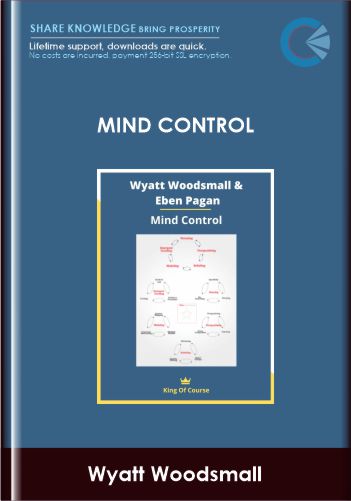Purchase Dr. Janina Fisher – Advanced Trauma Therapy at BoxSkill, You can get access to all files. Direct Download Link and No costs are incurred (No Ads, No Waiting Time, No Capcha).
Not to interrupt your learning, you should download the course after getting the link.
Develop your knowledge with the Dr. Janina Fisher – Advanced Trauma Therapy course. Purchuse at here with price $24.5 $10. You will get the full course with the same content as Salepage.
Advanced Trauma Therapy
Dr. Janina Fisher is a renowned international clinical psychologist with over 40 years’ specialising in trauma resolution. She offers understanding and relief in her advanced trauma sessions. We recommend beginning with the session ‘Recognising Trauma’ and then working your way through the series.
Recognising Trauma
In this session, Dr Janina Fisher will investigate the possible origins of feelings of being distressed, shame, anger, fear, desperation, and hopelessness – those times when our feelings are just bouncing around, up and down. Dr Fisher will consider history in our personal lives and how our mind is wired to thinking that our hard and difficult lives are just normal. She expands on flashbacks and how traumatic memories tend to isolate and alert us. She then reviews those times when we catch ourselves thinking “all is not well, something is wrong here”.
The Legacy of Trauma
In this session, Dr Janina Fisher reviews the influence of being abused, frightened or traumatised in context of the family, the neighbourhood, school, work and the community. She investigates the environments that can trigger the response and how when you are triggered it feels real. Dr Fisher considers the various responses when being triggered including: losing interest in things that used to be important, trouble concentrating or sleeping, and being jumpy and anxious all the time. She also looks at the connection to anxiety, depression, panic attacks, social anxiety, substance abuse, eating disorders, suicide and self-harming.
Relationship with Trauma
In this session, Dr Janina Fisher explores adaptation and how we learn to live with trauma. She looks at the function of our nervous system and how our nervous system adapts as a survival strategy and how trauma trains our nervous systems to be alert or to shut down, to stop the tears, to get anxious or dull our responses. Dr Fisher reviews changing our relationships to the traumatic response and evaluating environmental triggers. She investigates the patterns of reaction to events and gives examples of re-traumatising events and strategies for coping.
An Intervention
In this session, Dr Janina Fisher reviews times when we are suffering, depressed or anxious, in pain and we just want something to take it away. She looks at using curiosity to challenge memories and beliefs, and she offers simple skills to practice, helping you to recover from distress. Dr Fisher investigates changing the relationship to what is going on about us and helping develop tolerance of the feelings associated with past traumatising events and daily events. She explores building skills, resources and capacities to better tolerate our day to day non-traumatic existence.
Cultivating Resources
In this session, Dr Janina Fisher will introduce you to some simple tools that you can use to help you through difficult times and patterns that are problematic to you. She investigates changing the past by changing the patterns in our brains and bodies.
Dr Fisher offers resources that can help with depression, hopelessness, and feelings of defeat. She shows us skills to calm anxiety and give relief, slow down or speed up. You can learn to be still or increase movement and live in the moment. The traumatised nervous system needs to be taught how to live in peace.
The Past & Present
In this session, Dr Janina Fisher offer insights into post-traumatic stress disorder (PTSD) and how the past can keep invading the present. When we get triggered our bodies feel like we are in the past and we experience those feelings. The danger may have gone but the emotional trauma still affects us in our everyday life. Dr Fisher offers clinical examples and skills that can help separate the past from the present by learning to notice what is happening and how separating the past from present can help us move on.
Thoughts Can Be Your Enemies
In this session, Dr Janina Fisher looks at the impact of trauma and how thoughts can affect our feelings and our bodies. She investigates the origins of self-defeating stories, the consequences of self-blame and our attention to our own thoughts.
Dr Fisher considers how self-talk like “something bad is going to happen” or, “I am unable to defend myself or I don’t deserve to live” can be dangerous. Following a traumatic experience, we often tell ourselves self-defeating, negative stories. Dr Fisher looks at exercises and skills for understanding these self-defeating stories and changing negative thoughts.
Trauma & the Body
In this session Janina looks at how after trauma the nervous system becomes dysregulated, meaning that we lose control. She explains how we can become impulsive, overwhelmed or go into the no energy zone and just simply get lost. Janina reviews the feelings surrounding the energy of the body and its purpose and she offers understanding and skills for regulating ourselves in these difficult times. We learn to tolerate our emotions and focus on the energy it brings you rather than the destructive feelings.
Your Body, Your Friend
In this session, Dr Janina Fisher investigates learning the language of our bodies. Psychological trauma often separates us from our bodies. Learning to listen and be aware of our bodies can often be an easier and more effective communication. Dr Fisher looks at learnt patterns such as feeling irritated in situations or wanting to isolate and stay out of sight. Dr Fisher then leads us toward noticing which patterns work for us and which patterns we should change. She then illustrates how to change these patterns in a safe secure manner.Telling the Trauma StoryIn this session, Dr Janina Fisher asks how trauma gets resolved and how we find peace with ourselves. She investigates what it is that helps us find peace and what helps us feel alright inside – the sense that everything is OK. Dr Fisher illustrates pathways and gives examples for accessing this inner place and how we can begin to feel different inside. She shows that self-compassion and self-acceptance can have a soothing, warming effect. We can feel good and we can feel safe, and we can create peace for ourselves.
Traumatic Attachment 1
In this session, Dr Janina Fisher investigates childhood neglect and abuse, domestic violence, and the bonding of babies and children to their parents or caregivers. She considers child proximity seeking, the outcomes in abusive relationships and the hallmarks of traumatic attachment. Dr Fisher looks at how trauma survivors become alert and sensitive to normal human intimacy and how they can yearn for contact but cannot approach people. Dr Fisher reflects on “I want to be loved but I don’t trust other human beings”, “I want to connect but I want to be safe”.
Traumatic Attachment 2
In this session, Dr Janina Fisher investigates how attachment systems have been affected by trauma and how sensitivity to even small disappointment and conflict can be very intense. Dr Fisher offers an example for recognising conflict and separation anxiety that may be just a natural and normal part of human behaviour.
Dr Fisher looks at several scenarios that surround relationships and attributing blame and the response to triggering. She investigates the traumatised nervous system and its various defences and illustrates how it may be easier to communicate your needs to minimise relationship anxiety.
Dissociation & Fragmentation
In this session, Dr Janina Fisher investigates trauma-related disassociation and fragmentation. She considers the segments of the brain and how they are organised to view the world around us and how differently they respond once exposed to trauma. Dr Fisher explores function and restricted development when regularly exposed to possible danger and threat. She reviews how our feelings can disconnect and our actions become instinctual just to function in these adverse conditions. Dr Fisher offers insight and understanding on our survival defence responses and how this plays out in everyday life.
Self Alienation & Trauma
In this session, Dr Janina Fisher looks at how trauma changes our relationship to ourselves and its powerful effect on our sense of who we are, our sense of belonging and our sense of value. She investigates how and why our relationships to ourselves becomes compromised and why we often tend to isolate. Dr Fisher looks at why we disown the part of ourselves that has been treated unfairly or the part that has over-reacted to threat or violence. She looks at the mechanisms that enable us to disown and dissociate.
Trauma & Alcoholism
In this session, Dr Janina Fisher investigates the relationship between trauma and the overuse or addiction to alcohol. She provides a clinical example of alcohol being used as a very effective means of relieving the anxiety and/or numbness. Dr Fisher explains the nature of addiction and why addictive substances become so and how alcohol initially helps cope with trauma but then goes very wrong. Dr Fisher investigates the false and temporary capacity to tolerate anxiety, sadness or anger without having to act impulsively or to tolerate the dead, empty, numb emotionless state.
Trauma & Eating Disorders
In this session, Dr Fisher investigates the relationship between trauma and eating disorders and how they work to help relieve the painful distressing emotions and the numb disconnected dead feeling inside. She provides insight and clinical examples of how eating disorders can provide a specific and unique way of regulating painful emotions and physical activation. Dr Fisher looks at the various triggers and cause of anorexia nervosa, bulimia nervosa and over eating. She gives examples of the patterns that surround these behaviours and offers understanding and clinical skills for changing these patterns.
Recovery From Eating Disorders
In this session, Dr Janina Fisher reviews recovery from a trauma-related eating disorder and evaluates various therapy modalities. Dr Fisher investigates the patterns that surround eating disorders and the automatic beliefs and impulses that maintain them. She shows how eating disorders are driven by thoughts which trigger alarms, resulting in the eating disorder. She explains that our thoughts start as predictions, then become compulsive and finally addictive. Dr Fisher illustrates the use of mindful self-awareness, noticing patterns and learning ways to tolerate the feelings and sensations to ultimately change behaviour.
Trauma & Addictions
In this session, Dr Janina Fisher reviews the relationship between addictions and trauma and the role of the nervous system. Dr Fisher investigates the basis of addiction and considers the reasons for continuing with addictions. She looks at several addictions including the abuse of gambling and sex. Dr Fisher reviews how emotional vulnerability, closeness, and commitment play a large part in addiction and how addictions regulate the nervous system, ease vulnerability, and enable us to tolerate our feelings and avoid tackling the underlying issues causing the addiction. Understanding the relationship between trauma and addiction is integral to a successful recovery.
Recovery from Addictions
In this session, Dr Janina Fisher reviews recovering from a trauma-related addiction and considers how recovery can be as frightening as the addictive behaviour. She considers the use of being curious about our behaviours (see session 4) and investigates how commitment to change can be easily eroded leading to heightened sensitivity, strong emotional reactions, and irritability. Dr Fisher looks at the triggers that can lead to relapse and offers skills for relief. Addiction recovery can be virtually impossible if we don’t consider the trauma as an underlying cause.
Trauma & Self Harm
This session is an audio-only session, not a video. In this session, Dr Janina Fisher reviews self-harm and self-injury. Whether it’s cutting, hitting or burning, self-harm is often associated with a history of trauma. Dr Fisher investigates the origins of this self-harm, the adaptation and of how when you hurt your body it produces relief. Dr Fisher looks at the neurochemicals associated with self-harm and how they respond by giving a feeling of increased energy and pleasure. Dr Fisher looks at the challenges for treatment and offers therapy skills that can help.
Suicidality & Unsafe Behaviour
In this session, Dr Janina Fisher investigates suicide and unsafe behaviour and how it is well established that suicide and trauma go hand-in-hand. She considers the overwhelming feelings and the sense of just
feeling dead inside. Janina offers clinical examples and looks at the challenges surrounding therapy. Dr Fisher reflects on noticing the thoughts that surround the wish to die and unsafe behaviour – ‘will I feel better’ or ‘will I feel worse’. Dr Fisher offers practical pathways toward therapy and understanding.
Recovery from Suicidality and Unsafe Behaviour
In this session, Dr Janina Fisher reports that understanding the patterns of suicide attempts, suicide ideation, and self-destructive behaviour is a very important part of suicide recovery. Dr Fisher looks at the impact on the body and considers the input from both left and right hemispheres of the brain in the decision-making process. Dr Fisher considers how the left and right hemispheres relating to each other ultimately determines how we manage our feeling and how safe we are in our own skins. Dr Fisher offers various clinical examples and pathways to understanding recovery.
Trauma & Shame
In this session Dr Janina Fisher considers how trauma-induced shame can continue to be triggered well after the event and how many victims feel that they have been damaged beyond repair, never to recover. Dr Fisher investigates shame as a survival strategy and gives examples of triggers that can take us back into this state. Dr Fisher provides understanding around ‘bowing the head’, ‘averting the gaze’ and feeling ‘shame of shame’. Dr Fisher proposes insights and skills on how we can heal by changing our relationship with shame.
Understanding Ourselves
In this session, Dr Janina Fisher investigates understanding ourselves as trauma survivors and considers the various sides of ourselves that it took to anticipate, protect and be prepared for threat and/or danger. Dr Fisher considers two trauma theories and offers awareness and insight on both. She then considers how trauma can alienate us from ourselves and how an important part of trauma recovery is coming to know all parts of ourselves. Dr Fisher reviews our ‘internal critic’ and outlines suggestions on how to moderate this influence. In conclusion, she offers therapy pathways for understanding ourselves and finding peace.
Befriending our Parts – Part 1
In this session, Dr Janina Fisher investigates how many trauma survivors fear something is terribly wrong with them (disassociation) and reviews the many internal struggles. She considers what it may have taken to become a trauma survivor and that the job of survival is to survive, not to make it look good. Dr Fisher looks at how parts of our bodies cause us to re-live terrible feelings and situations. Dr Fisher considers the shame and the feelings that surround this shame and offers an approach that can help put the pieces back together.
Befriending our Parts – Part 2
In this session, Dr Janina Fisher investigates fragmenting and personality splitting as part of surviving. She considers the many parts of a person that are required to cope with adverse and dangerous situations. Dr Fisher discusses how we reconcile the different parts of ourselves after the event and how to avoid the self-hatred. Every distressing thought, feeling or physical reaction should be viewed as a communication from a specific part of ourselves. Dr Fisher outlines suggestions for healing and the skills that enable you to facilitate your own recovery.
Resolving the Trauma
In this session, Dr Janina Fisher reviews the different processes for the resolutions of trauma and offers her own pathway to trauma resolution. Dr Fisher looks at helping the parts of ourselves resolve the trauma by providing the missing experiences and by helping us to feel “it is different now, I have made it and I am going to be OK”. Dr Fisher covers the processes of acknowledgment and apology, leading to relief and validation. Dr Fisher offers therapy insights with several clinical examples and some practical skills for working with resolving your own trauma.
Emotional Intelligence
In this session, Dr Janina Fisher investigates the meaning of emotional intelligence and considers both the left and right hemisphere of our brain. She compares the interpretation of events from each hemisphere and limitations of the right brain. Dr Fisher looks at processing in relation to trauma, the difficulty in expressing our feelings and needing to feel before we try to verbalize. Dr Fisher considers how early attachment experiences influence our emotional intelligence, and she offers pathways to helping our children become more emotionally intelligent.
Retrain the Brain
In this session, Dr Janina Fisher introduces us to how the brain operates in our daily lives and as a survival mechanism our neural circuitry is organised to be alert and sensitive to traumatic experiences. Dr Fisher explores why the neural circuitry is more active to trauma triggers and why we are often hypersensitive to these triggers. Dr Fisher considers how when triggered by trauma our brain goes into hyper-alert and part of our thinking is shut down. Janina offers insight and understanding into building new circuitry and retraining the traumatised brain.
Buy the Dr. Janina Fisher – Advanced Trauma Therapy course at the best price at Boxkill. After your purchase, you will get access to the downloads page. You can download all the files associated in your order at here and we will also send a download notification email via your mail.
Unlock your full potential with Dr. Janina Fisher – Advanced Trauma Therapy courses. our courses are designed to help you excel.
Why wait? Take the first step towards greatness by purchasing Dr. Janina Fisher – Advanced Trauma Therapy courses today. We offer a seamless and secure purchasing experience, ensuring your peace of mind. With our trusted payment gateways, Stripe and PayPal, you can confidently complete your transaction knowing that your financial information is protected.
Stripe, known for its robust security measures, provides a safe and reliable payment process. With its encrypted technology, your sensitive data remains confidential throughout the transaction. Rest assured that your purchase is protected.
PayPal, a globally recognized payment platform, offers an additional layer of security. With its buyer protection program, you can feel confident in your purchase. PayPal ensures that your financial details are safeguarded, allowing you to focus on your learning journey.
Is it secure? to Use of?
- Your identity is completely confidential. We do not share your information with anyone. So it is absolutely safe to buy the Dr. Janina Fisher – Advanced Trauma Therapy course.
- 100% Safe Checkout Privateness coverage
- Communication and encryption of sensitive knowledge
- All card numbers are encrypted using AES at relaxation-256 and transmitting card numbers runs in a separate internet hosting atmosphere, and doesn’t share or save any data.
How can this course be delivered?
- After your successful payment this “Dr. Janina Fisher – Advanced Trauma Therapy course”, Most of the products will come to you immediately. But for some products were posted for offer. Please wait for our response, it might take a few hours due to the time zone difference.
- If this happens, please wait. The technical department will process the link shortly after. You will receive notifications directly by e-mail. We appreciate your wait.
What Shipping Methods Are Available?
- You will receive a download link in the invoice or YOUR ACCOUNT.
- The course link always exists. use your account to login and download the Dr. Janina Fisher – Advanced Trauma Therapy course whenever you need.
- You only need to visit a single link, and you can get all the Dr. Janina Fisher – Advanced Trauma Therapy course content at once.
- You can do your learning online. You can be downloaded for better results and can study anywhere on any device. Make sure your system does not sleep during the download.
How Do I Track Order?
- We always notice the status of your order immediately after your payment. After 7 days if there is no download link, the system will automatically complete your money.
- We love to hear from you. Please don’t hesitate to email us with any comments, questions and suggestions.
You must be logged in to post a review.











Reviews
There are no reviews yet.